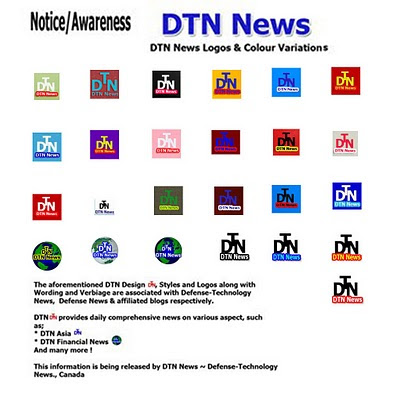DTN News: Eurofighter Typhoon Sales Boost Hope To BAE Future Targets
*Source: DTN News / Int'l Media
(NSI News Source Info) LONDON, UK - December 7, 2009: BAE Systems expects a £10bn boost to revenues if new targets for the sales of Typhoon jets are reached. The defence company said the Eurofighter consortium, which includes Germany, Spain and Italy, expects to sell 300 Typhoons worth £30bn to ten countries over the next decade.
 Eurofighter production ~ An overall production contract for 620 aircraft was signed in January 1998 with 232 for UK, 180 for Germany, 121 for Italy and 87 for Spain. By mid-2009, a total of 707 Eurofighter Typhoon aircraft had been ordered including 72 Saudi Arabia and 15 for Austria. Initial orders have been placed for 148 aircraft - Germany (44), Italy (29), Spain (20) and UK (55). Prime customer is the Nato Eurofighter and Tornado Management Agency (NETMA), representing the four governments.
Series production of the aircraft is underway at EADS Military Aircraft (Germany), BAE Systems, Alenia Aeronautica and EADS CASA (Spain). The first four series production aircraft for the four participating nations took maiden flights in February 2003 and the Eurofighter Typhoon received type acceptance on 30 June 2003. First series production twin-seat aircraft were delivered to the German Air Force in August 2003, to the Spanish Air Force in September 2003, to the UK Royal Air Force in December 2003 and to the Italian Air Force in February 2004. First single-seat batch 2 aircraft were delivered to the four participating nations in early 2005. Deliveries of all 148 tranche 1 aircraft (including one airframe for fatigue testing) to the four partner nations concluded in June 2008.
Eurofighter production ~ An overall production contract for 620 aircraft was signed in January 1998 with 232 for UK, 180 for Germany, 121 for Italy and 87 for Spain. By mid-2009, a total of 707 Eurofighter Typhoon aircraft had been ordered including 72 Saudi Arabia and 15 for Austria. Initial orders have been placed for 148 aircraft - Germany (44), Italy (29), Spain (20) and UK (55). Prime customer is the Nato Eurofighter and Tornado Management Agency (NETMA), representing the four governments.
Series production of the aircraft is underway at EADS Military Aircraft (Germany), BAE Systems, Alenia Aeronautica and EADS CASA (Spain). The first four series production aircraft for the four participating nations took maiden flights in February 2003 and the Eurofighter Typhoon received type acceptance on 30 June 2003. First series production twin-seat aircraft were delivered to the German Air Force in August 2003, to the Spanish Air Force in September 2003, to the UK Royal Air Force in December 2003 and to the Italian Air Force in February 2004. First single-seat batch 2 aircraft were delivered to the four participating nations in early 2005. Deliveries of all 148 tranche 1 aircraft (including one airframe for fatigue testing) to the four partner nations concluded in June 2008.
The success of the export mission is vital to BAE's Warton factory near Preston, Lancashire, which assembles the Typhoon, also known as the Eurofighter.
About 20,000 skilled workers in the area depend on the factory. Last month the Government said it was cutting back on an order for 232 jets. It will now buy just 160.
This could have left the factory vulnerable to closure in five years, but the world-leading design is expected to secure about one third of the world fighter market.
BAE Systems has been given the task of leading the export drive in Japan, where there is a fierce battle-between the Europeans and Americans for a 50-aircraft programme worth about £5bn.
BAE is also trying to net an Indian order for 66 planes. It has already sold 24 planes to the Saudis and hopes to win further orders from Oman.
A key selling point is the transfer of technology to the countries buying the jets, allowing them eventually to build their own. This is in contrast to the Typhoon's closest rival, the Lockheed Martin/Boeing F-22, whose technology the Americans are keen to keep secret.
But Mark Parkinson, BAE senior vice president international, said: 'You cannot ignore the fact that politics plays a very big role.'
•• The British and US governmentsare still locked in talks over the F-35 Joint Strike Fighter, it has emerged. The UK Government intends to buy the plane, which is partly built by BAE Systems, as well as Lockheed Martin/Boeing, to replace the Harrier Jump Jet.
But the US government is still refusing to hand over some technology, which would mean the RAF would not be able to completely service the plane itself.
 Somali Coastguards patrol boats. IS THIS A JOKE!
Somalia's government called on Saturday for an international peace plan like President Barack Obama's new Afghan strategy, saying it would be more effective and far cheaper than current efforts to combat Somali piracy.
Somali Coastguards patrol boats. IS THIS A JOKE!
Somalia's government called on Saturday for an international peace plan like President Barack Obama's new Afghan strategy, saying it would be more effective and far cheaper than current efforts to combat Somali piracy.





















